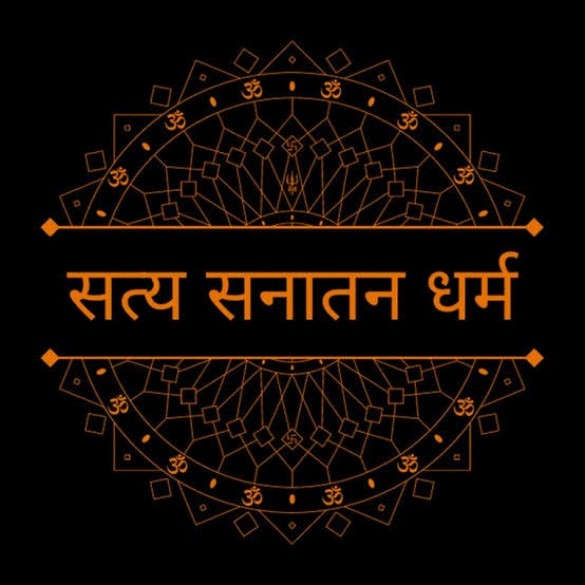
Sanatana Dharma, often referred to as Hinduism, is one of the world's oldest and most complex religious and philosophical traditions. Rooted in the Indian subcontinent, it is not just a religion but a way of life, encompassing diverse beliefs, rituals, practices, and philosophies that have evolved over thousands of years. The term "Sanatana Dharma" translates to "Eternal Law" or "Eternal Way," emphasizing its timeless nature and universal principles. Sanatana Dharma, the ancient and enduring tradition, continues to shape the lives of millions of people worldwide. Its timeless principles of compassion, self-realization, and interconnectedness with all living beings resonate across cultures and faiths. Despite the challenges posed by modernity and globalization, the essence of Sanatana Dharma remains steadfast in guiding individuals towards a purposeful and spiritually fulfilling life, rooted in the eternal wisdom of the ages.
The origins of Sanatana Dharma are deeply rooted in the ancient Indus Valley Civilization, which thrived in present-day India and Pakistan around 3300 to 1300 BCE. The civilization exhibited early symbols and practices that bear similarities to later Hindu traditions. Over the centuries, this religious and cultural heritage evolved, incorporating various influences, such as the Vedic period (around 1500 to 500 BCE), the emergence of the Upanishads (philosophical texts exploring the nature of reality), and the integration of diverse regional beliefs and practices.
Sanatana Dharma is characterized by a vast array of beliefs and philosophies that can be broadly summarized as follows:
Atman and Brahman: Central to Hindu philosophy is the concept of "Atman," the individual soul, and "Brahman," the ultimate reality, the universal soul or consciousness. The goal of life is to realize the identity of Atman and Brahman, understanding that the essence of one's self is the same as the essence of the entire cosmos.
Dharma: Dharma refers to the moral and ethical duties and responsibilities that individuals must adhere to in their lives. It encompasses righteousness, duty, justice, and the right course of action in any given situation.
Karma and Reincarnation: The law of karma dictates that every action has consequences, and individuals accumulate positive or negative karma based on their deeds. Reincarnation, the cycle of birth and rebirth, is influenced by one's karma, with the ultimate aim of breaking free from this cycle and achieving spiritual liberation (moksha).
Deities and Worship: Hinduism is rich in its pantheon of deities, each representing different aspects of the divine. The choice of personal deities and the modes of worship vary among individuals and regions. Major deities include Brahma (the creator), Vishnu (the preserver), Shiva (the destroyer), Lakshmi (goddess of wealth), and Saraswati (goddess of knowledge), among others.
Hinduism has a vast corpus of sacred texts, written in ancient Sanskrit. The most important ones include:
Vedas: The oldest and most revered scriptures, consisting of four collections (Rigveda, Samaveda, Yajurveda, and Atharvaveda). They contain hymns, rituals, and philosophical discussions.
Upanishads: Philosophical texts that delve into the nature of reality, the self, and the ultimate truth (Brahman).
Bhagavad Gita: Part of the Indian epic Mahabharata, this revered scripture is a dialogue between Lord Krishna and the warrior prince Arjuna, discussing duty, righteousness, and the path to spiritual realization.
Ramayana and Mahabharata: Epic narratives that offer valuable moral and ethical teachings through the stories of Lord Rama and the Pandavas, respectively.
One of the most remarkable aspects of Sanatana Dharma is its pluralistic nature, allowing for a diverse range of beliefs and practices. Hinduism accommodates various sects, regional traditions, and philosophical schools, providing followers with a wide spectrum of spiritual paths to choose from. Hinduism is known for its colorful and vibrant festivals, celebrated with great zeal and enthusiasm across the country. Diwali (Festival of Lights), Holi (Festival of Colors), Navaratri (Nine Nights), and Durga Puja are some of the major festivals that showcase the rich cultural heritage and religious fervor of Hindus.
Also read - Lakshmana Temple: Testament to The Architectural Marvels
The Secret Behind Making Swastika before Auspicious Work
Discovering India's 10 Popular Temples and Their Sacred Significance